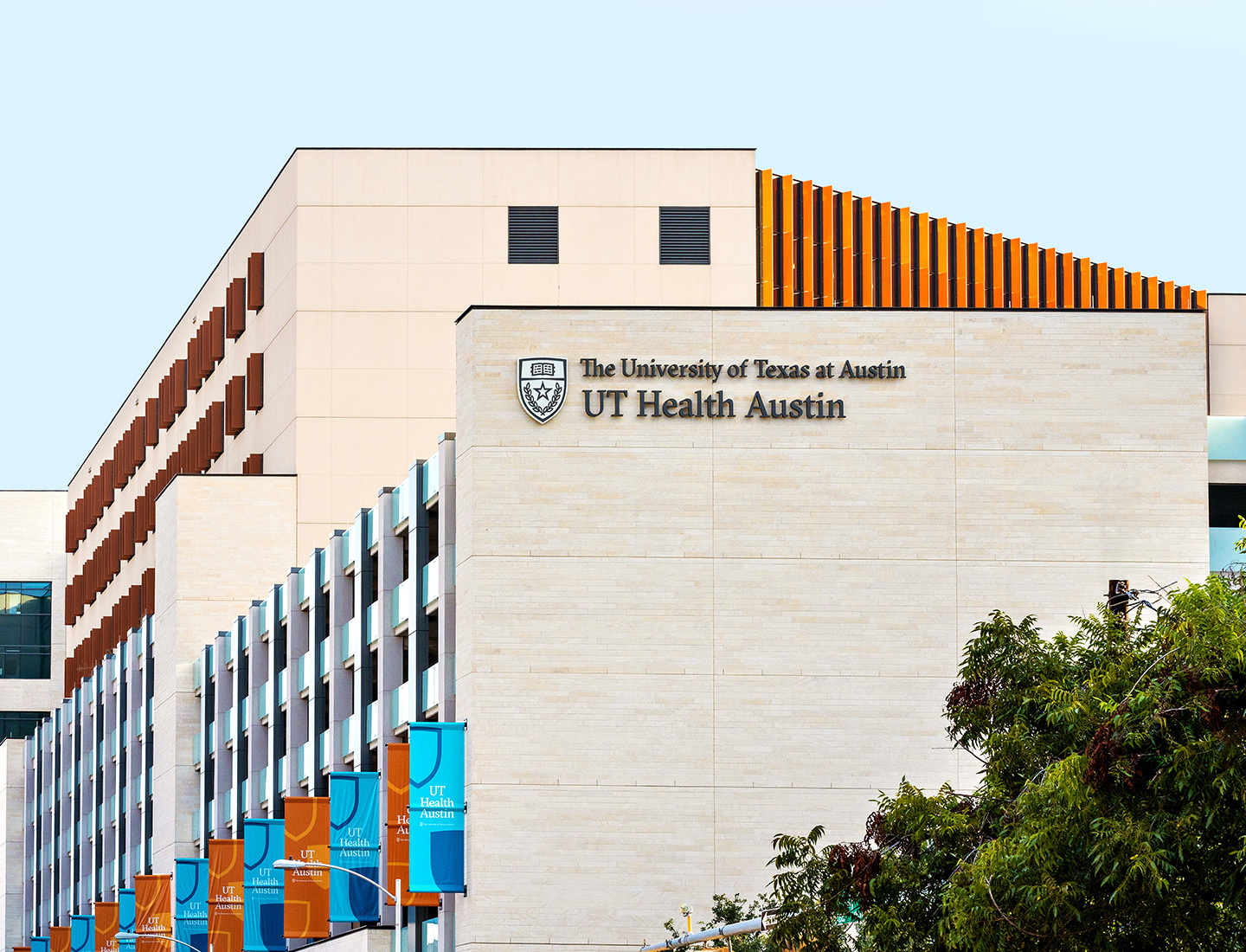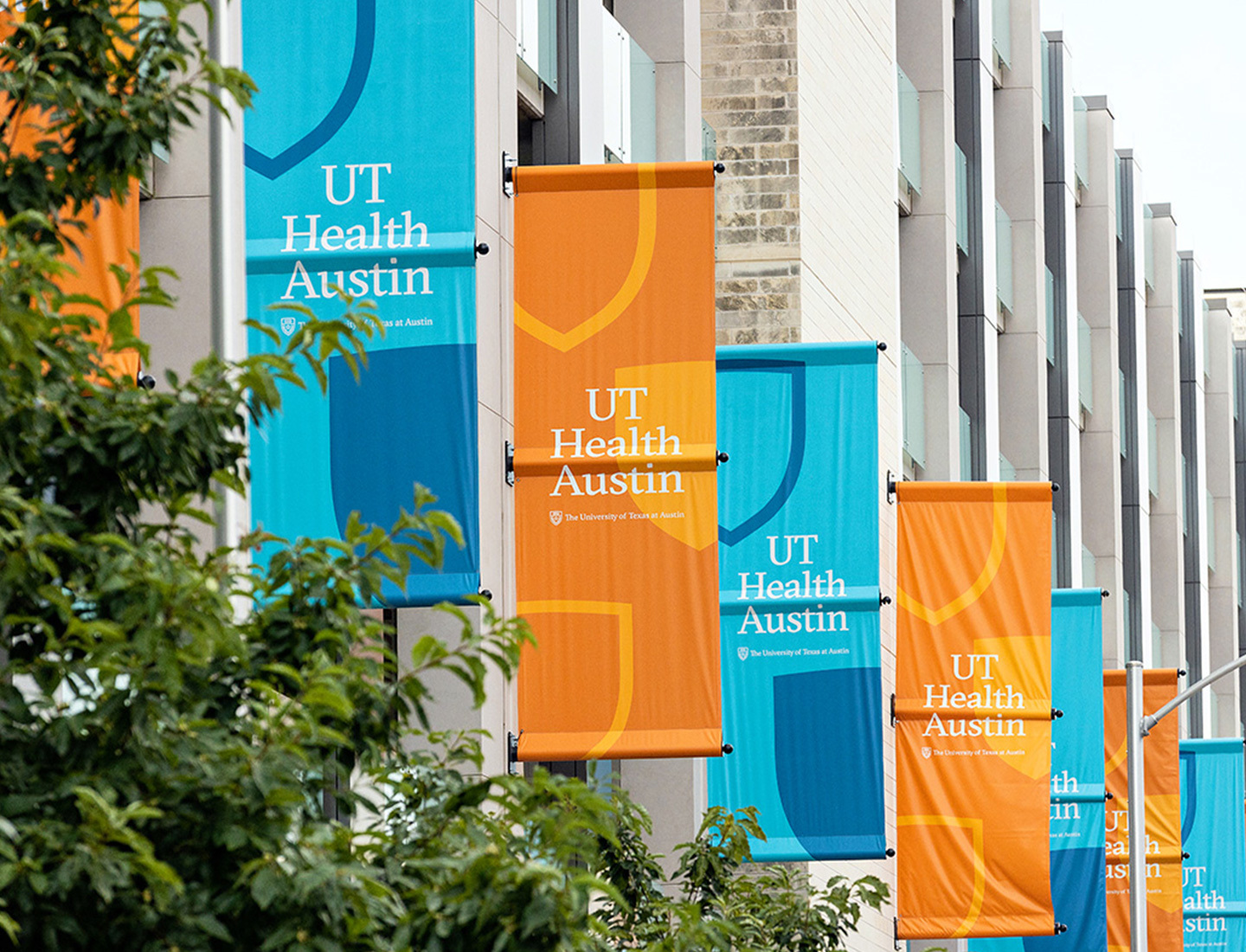About This Service
UT Health Austin’s Transcranial Magnetic Stimulation (TMS) service offers a cutting-edge approach to treating major depressive disorder in adult patients (18 years and older) when antidepressants have failed to provide relief or the side effects of these medications are not well-tolerated. TMS serves as an alternative to electroconvulsive therapy (ECT), also known as shock therapy. Unlike ECT, TMS is a noninvasive procedure with a low risk for complications or side-effects. TMS involves delivering a series of focused magnetic pulses to an area of the brain (left dorsolateral prefrontal cortex) known to be underactive in major depression. Our goal is to connect you with an academic mood disorder expert trained in treatment-resistant depression to help improve your overall quality of life.
Transcranial Magnetic Stimulation (TMS) is FDA-approved for the treatment of Major Depressive Disorder.
Please note: TMS at UT Health Austin does not offer electroconvulsive therapy (ECT) therapy.
Treatment Approach
During TMS treatment, an electromagnetic coil is placed on the scalp over the left prefrontal cortex. A small magnetic field is generated, which passes through the scalp and skull into the outer layer of the brain (cortex). This magnetic field stimulates brain cells (neurons) to fire and rewire with other regions of the brain to improve symptoms of psychiatric disorders, such as depression. This form of stimulation is performed without causing a seizure or requiring anesthesia, and patients can safely drive as well as return to normal activities following each treatment.
At UT Health Austin, we take a multidisciplinary approach to your care. This means you will benefit from the expertise of multiple specialists across a variety of disciplines caring for you in one place. The Transcranial Magnetic Stimulation care team includes psychiatrists, social workers, and more who work together with your referring provider to ensure your care is delivered seamlessly.
We also collaborate with our colleagues at the Dell Medical School and The University of Texas at Austin to utilize the latest research, diagnostic, and treatment techniques, allowing us to provide you with cutting-edge medical treatment options.
Appointment Information
Your initial appointment will consist of a 60 to 90-minute consultation with the Transcranial Magnetic Stimulation care team who will review your medical history and determine your candidacy for undergoing TMS. Treatments sessions last 10 minutes and patients typically receive five treatments per week (one per day from Monday to Friday) for a total of 30 treatment sessions. After this initial course of treatment, the number of individual treatments will gradually decrease over a period of 3 weeks (three treatments per week for one week, two treatments per week for one week, etc.), resulting in a total of 36 treatment sessions.
At UT Health Austin, we focus on you, the whole patient, making sure that you have the support you need throughout your care. We are committed to clear and timely communication with you, your referring provider, and other healthcare specialists, beginning with your initial visit and continuing throughout your cycle of care. Once we receive a referral from your referring provider, members of the Transcranial Magnetic Stimulation care team will identify any existing records of treatment in the UT Health Austin system and communicate with your referring provider to obtain needed medical records and other information. If you have received medical treatment from a provider other than your referring provider, your care team will contact you to receive a written Authorization to Receive Medical Records from your other provider(s). The Transcranial Magnetic Stimulation care team generally will not schedule your initial appointment until it has received all relevant records. Once all records have been received and reviewed, the UT Health Austin Access Center will contact you to schedule your initial appointment.
To explore FAQs regarding your upcoming appointment, please click here.
Our Facility


UT Health Austin is housed in the Health Transformation Building (HTB). The HTB is located in downtown Austin, TX on The University of Texas at Austin campus and neighbors the Dell Medical School research and learning buildings as well as the Dell Seton Medical Center at The University of Texas.
This facility is outfitted with the latest state-of-the-art technology and organized to support an unmatched level of multidisciplinary care. Patients have access to all of the resources and amenities UT Health Austin has to offer, including attached garage parking, comfortable waiting areas, an on-site cafe, a full-service H-E-B pharmacy, advanced imaging and lab testing, and an Ambulatory Surgery Center for same-day surgical care.